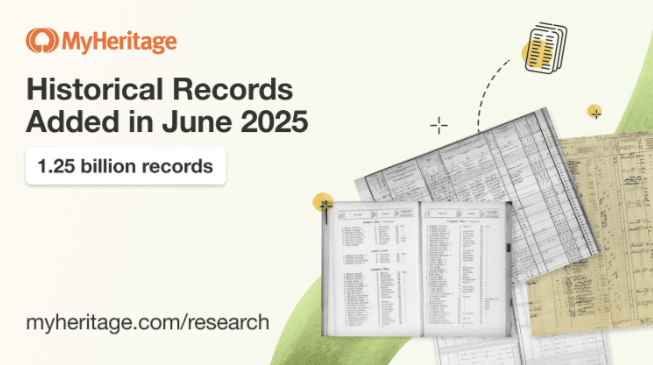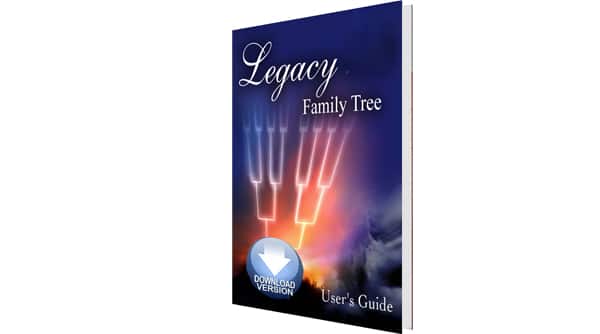Your cart is currently empty!
Uncommon Sources: More Great Discoveries
I asked and you answered! I hope my original blog post on What Uncommon Sources Have You Used got you thinking and gave you some places to start looking for new-to-you genealogy sources. I was excited to see the comments on that blog post and what sources you are using. I wanted to highlight a few so that we all could benefit.
Let’s look at a few of your unusual genealogy sources:
Judy Holder mentioned that she has used church bulletins. She commented, “A church bulletin gave me a clue about a book that contained a biography of my grandfather.” This is a great uncommon source probably because they can be difficult to find. Church bulletins may be archived by the church itself or they could be found in another type of archive. A look through DPLA and ArchiveGrid reveal some results for the keywords “church bulletin.” Once, as I researched one of my signature quilts from the 1930s, I found a church bulletin posted by a Catholic church that provided me a clue to a death date and a cemetery. I found that church bulletin just by Googling the person’s name.
Phil Wood mentioned commemorative benches in his comment. These are some of my favorite sources and whenever I travel I take photos of anything that has people’s names, such as benches, plaques, and other memorials. These mentions might seem at first glance to only name the wealthy or famous but don’t forget they can also mention veterans, soldiers killed in action, pioneers of the area, victims of a tragedy, or names of loved ones that a donation has been made in. These plaques can be found in all kinds of public places such as parks and historical buildings, to even the sidewalks of tourist destinations like Disneyland.
What makes finding this type of source difficult is that it might require a trip to that place your ancestor lived but don’t also forget to check websites for that place as well, just in case. Some examples of websites that include names on markers include the Salem (Massachusetts) House History & Plaque Program and Heather Rojo’s Honor Roll Project, a collaborative effort documenting military plaques.
Diana Haselmyer's comment shared a discovery she made requesting records verifying her mother's early years in an orphanage. When she received the orphanage records for her mother they included school records. Her discovery reminded me how too often in our search to find birth, marriage, and death records we tend to forget about our ancestor’s younger years. School records can be a great way to fill in an ancestor’s timeline. Some school records are obvious like a school newspaper or yearbook but there are others that are equally genealogically relevant as well, including school censuses, report cards, or actual school records. Start your search in FamilySearch with a catalog search of Place and Keyword. Most subscription websites have a School category. On MyHeritage you’ll find yearbooks, alumni lists, and other records in their Schools & Universities collection. Don’t forget to also check nearby archives as well as contacting the school itself. In the case of a university, it might be worthwhile to check their library, archive, and digital collections.
Keep Those Uncommon Sources Coming!
Right now, I’m on the hunt for even more uncommon sources. And while they are not uncommon to me, I’ve been studying some local 19th century divorce records to see what information they reveal. I’ve been surprised by what I’ve found through studying each record one-by-one. One of my favorite finds was in one record where the wife asked that her maiden name be restored providing additional details I wouldn’t have expected for that era.
Keep looking for those uncommon or new-to-you sources. They can help your research as you think outside of the genealogical box for answers. Comments to my original post include some great resources to try so I recommend reading those. One last comment from the post that I wholeheartedly agree with comes from Shirley who wrote that “Facebook groups and message boards are a great resource for sources” and she’s right. Join a new Facebook group to get ideas for your research. You can find genealogically relevant Facebook groups from Katherine R. Willson’s Genealogy on Facebook List, Gail Dever’s Facebook for Canadian Genealogy, and Alona Tester’s Facebook for Australian History & Genealogy list.
Gena Philibert-Ortega is an author, instructor, and researcher. She blogs at Gena's Genealogy and Food.Family.Ephemera. You can find her presentations on the Legacy Family Tree Webinars website.





Great article. I have come across family stories in newspapers, many of which can be accessed online. The other thing I do is study local history as family names may appear in write ups in the places where they lived.